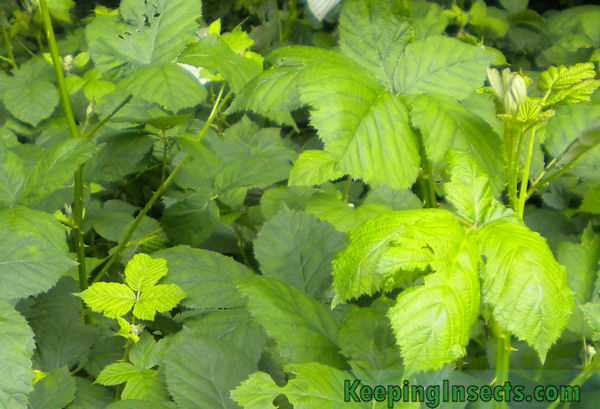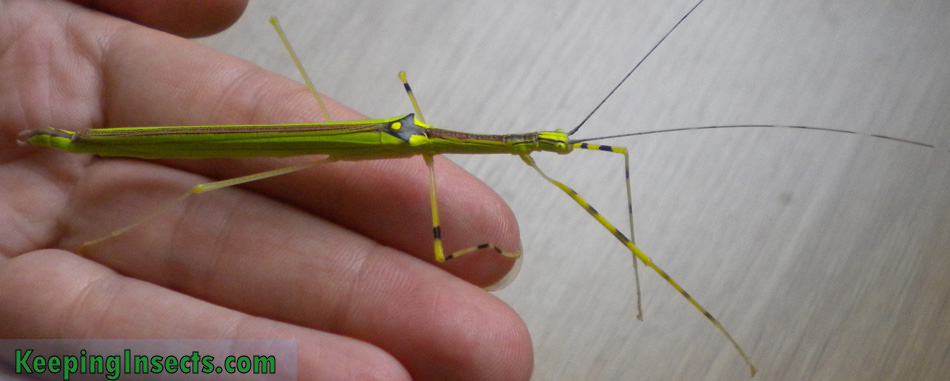Stick insects eat fresh leaves, so you will have to find a way to provide this for them. It’s generally not for sale at the pet shop! Luckily you can find fresh leaves in most countries all year round. Even in winter you’ll be able to find it.
Firstly: what does your stick insect eat? Not all species will eat the same. The most common stick insect, the Indian Stick Insect, eats ivy leaves. Ivy is evergreen so will keep its fresh leaves all year round. Ivy is also easy to keep indoors, so you could even just have a pot with an ivy plant indoors. So it’s easy to find these leaves.
Most stick insects do not eat ivy, but will eat another evergreen plant: bramble. Bramble will keep its leaves in winter, but not all of them. When the winter will get really though, it will lose most or all leaves. Therefore you will have to look for bramble bushes in areas with some protection against the cold. Like under bridges, in parks or close to buildings. You’ll generally still find some bramble leaves.

bramble leaves
If you know cannot find any bramble leaves in winter, because you live in a really cold area, you should prepare yourself before winter. You can cut bramble leaves and branches and freeze them in your freezer. When you thaw them they will not be as fresh, but the stick insects will eat them. Alternatevely you could keep cuttings in a jar of water in a cold, non-freezing area like your garage. The leaves will stay fresh for some time.
If you are really having trouble finding leaves in winter, you could buy organic rose bushes at your garden center. These organic bushes are not sprayed with insecticide and thus are safe to eat for your stick insects. If your specie will eat bramble leaves, it will also eat rose leaves. This will get them through the winter months.
When spring arrives you should not feed the fresh new bright green bramble leaves to your stick insects. These fresh leaves contain a poison that could kill your insects. Keep on feeding the old dark green leaves until the new leaves are larger and less brightly colored. Then they should be safe to eat for your critters.
You can read more about the different food plants at our Food Plants page.

